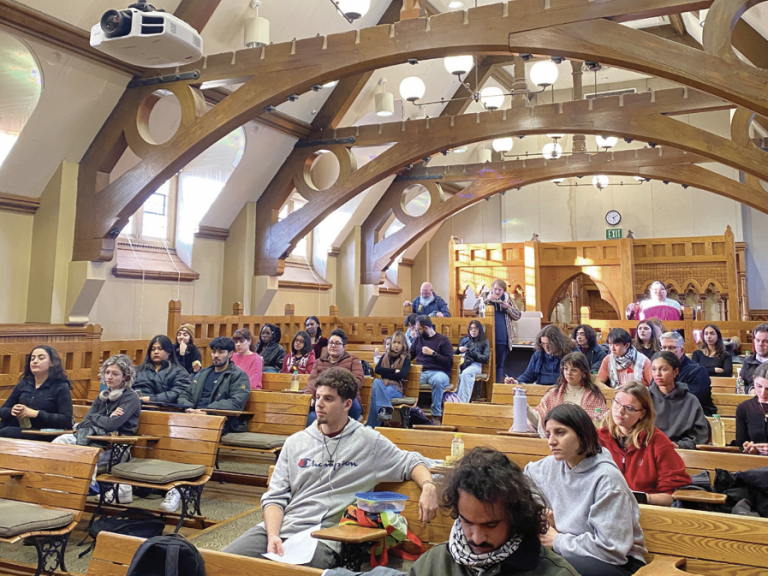Jack P. Carroll ’24
Staff Writer
On Monday, Oct. 26th, a Title IX working group comprised of Trinity students, faculty, staff, and senior administrators met via Zoom to review the College’s updated Interim Sexual Harassment Policy that was sent out to the community in an email on August 14, 2020. In the meeting, the group considered a broad range of questions that were posed by students, faculty, and staff regarding its implementation and compliance with new federal guidelines issued by the U.S. Department of Education on May 6, 2020. The Tripod conducted an extensive review of the Interim Policy and its provisions shortly after its release in mid-August.
The new regulations, which were spearheaded by President Donald Trump’s appointed Secretary of Education, Betsy Devos, increase the burden of proof for college students in the U.S. who report alleged instances of sexual misconduct. Under the new mandates, colleges are to host live hearings in which the students’ counsels are to cross-examine the parties and witnesses involved in the alleged incident. Also, the regulations indicate that colleges are not required to investigate student claims of sexual harassment that occur outside of the United States, such as in study abroad programs.
Other key components of the new regulations include a more narrow definition of sexual harassment, and the end of a “single investigator” model in which one official is responsible for “investigating, adjudicating, and issuing disciplinary sanctions against respondents.” Furthermore, colleges are no longer required to respond to sexual harassment allegations within a set time frame; and they are free to determine whether they want to follow a “preponderance of evidence” or a “clear and convincing standard” as a burden of proof.
Trinity’s General Counsel, Dickens Mathieu, noted that the new regulations prohibit colleges from prejudging cases and that conclusions cannot be reached until there has been a hearing. Furthermore, Mathieu emphasized that it is not the responsibility of the Title IX coordinator to determine whether an allegation “constitutes a violation,” but instead, to decide whether an allegation, if it were proven to be true, would violate the Title IX policy.
In regards to potential “double jeopardy” cases in which a student, after not receiving the desired decision under the Title IX process, were to pursue a claim of sexual harassment under a different college policy, Mathieu noted that this would be a matter that the “gatekeeping function” of the sexual harassment policy would resolve.
Regarding concerns about the costs of legal counsel for live hearings, Director of the Women and Gender Resource Action Center Laura Lockwood noted that the college has been in contact with the Victim Rights Center, which employs ten pro bono attorneys who have experience representing complainants in sexual misconduct cases. Lockwood also noted the possibility of a partnership with Connecticut colleges and universities such as Yale, UConn, and Quinnipiac, which have access to law students via their law schools for legal assistance in live hearings.
Vice President for Student Success and Enrollment Management Joe DiChristina noted that the College administration has not made a decision as to whether students who cannot afford legal counsel will be financially compensated. He further noted that the College administration is looking into other options to address the costs of legal representation.






